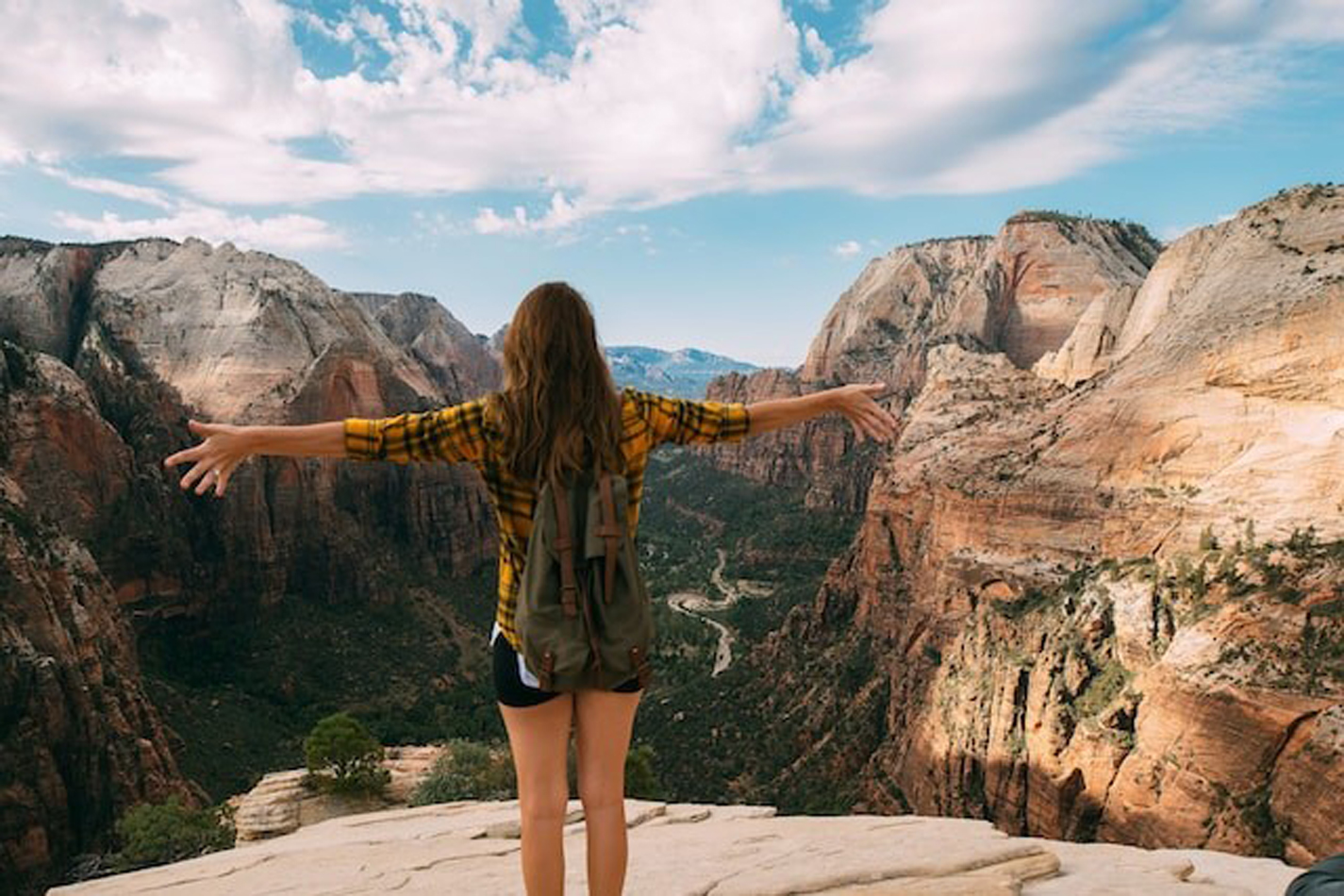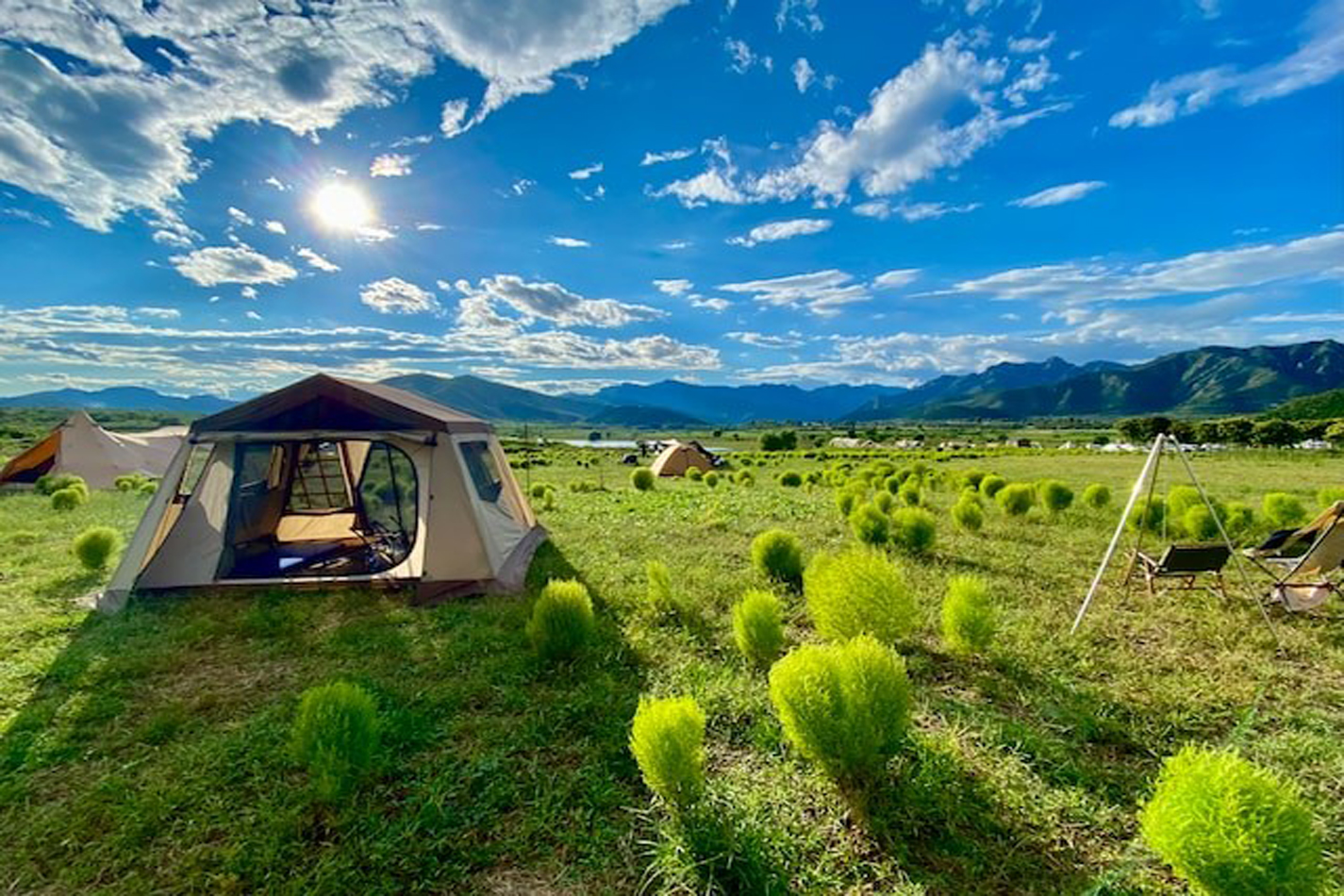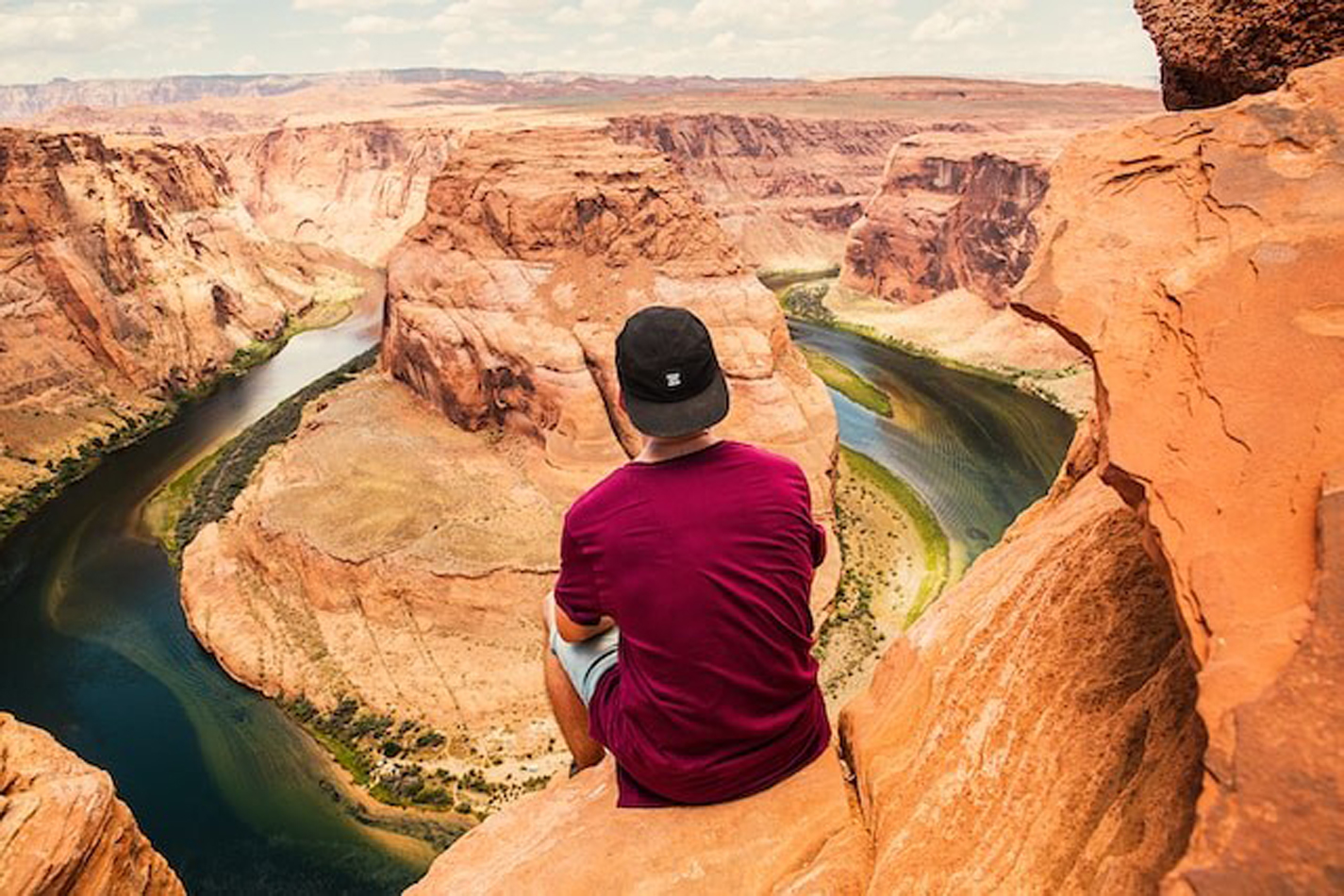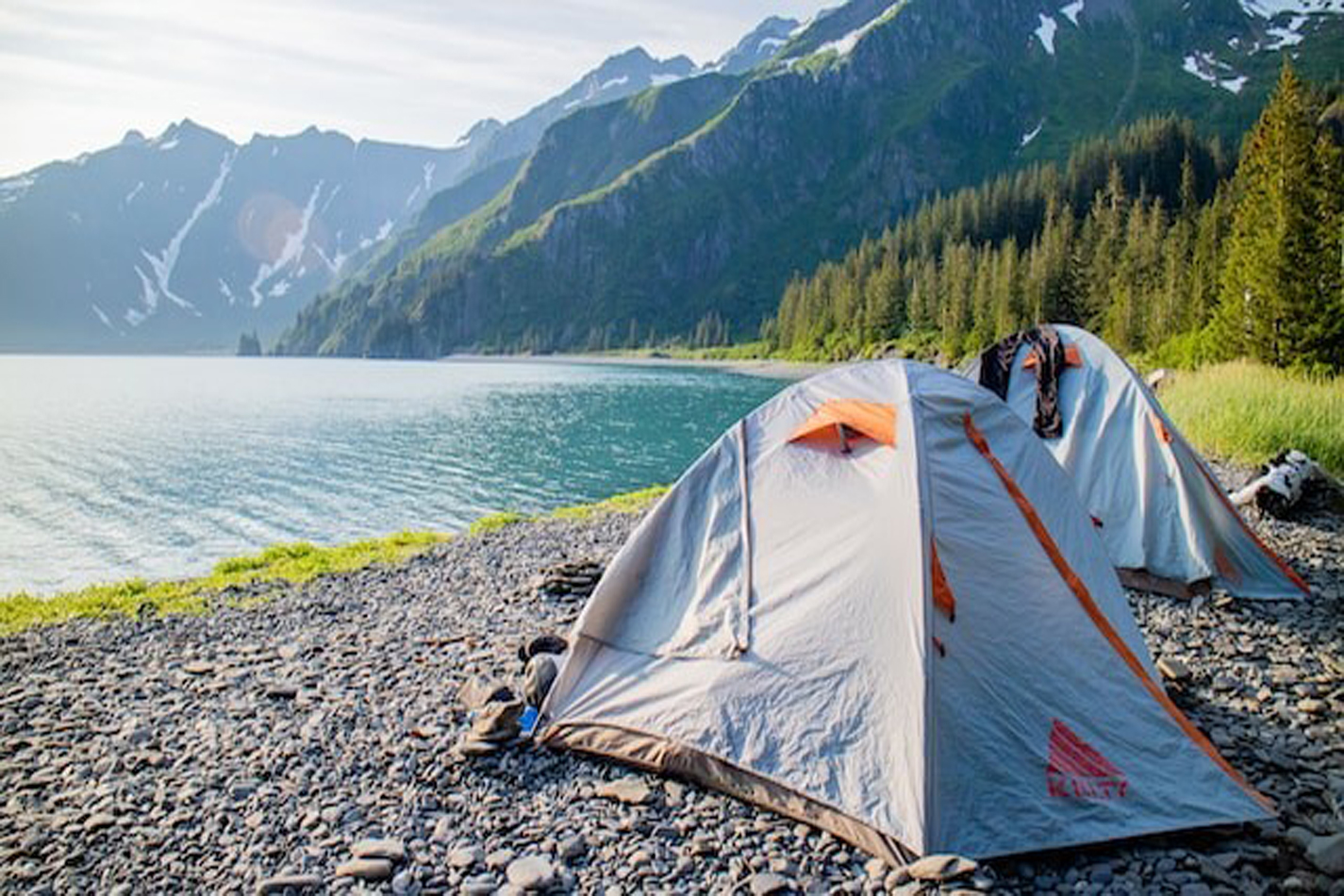Embarking on a solo camping trip can be a thrilling experience, but the anxiety and fear associated with it can be overwhelming.
As someone who has transitioned from camping with companions to relishing the solitude of the wilderness, I understand the challenges that come with it. In this guide, I'll share six secrets that have helped me overcome the initial hurdles, allowing me to revel in the peace and tranquility of nature while camping alone.
"The 6 secrets in this guide will help you unlock the joy of solo camping "

1. Choosing the Right Location
Researching Campsites
Before embarking on a solo camping trip, thorough research on potential campsites is crucial. Look for locations with positive reviews, suitable amenities, and a track record of safety.
Positive Reviews
Look for campsites with positive reviews from solo campers. Online platforms, forums, and camping apps are great resources for gathering feedback on a particular location.
Amenities
Prioritize campsites with essential amenities such as clean water sources, restroom facilities, and designated camping areas. Check if there are nearby stores for supplies.
Safety Track Record
Research the safety history of the campsite. Look for information on any reported incidents and the general reputation for security. Parks and official websites often provide safety guidelines.
Accessibility
Ensure the campsite is easily accessible, especially if you are camping alone. Consider factors like proximity to roads, emergency services, and the ease of reaching your chosen spot.
Regulations
Be aware of any camping regulations and permits required for the chosen location. Some areas may have restrictions on campfires, camping zones, or entry permits.
Wildlife Awareness
Learn about the local wildlife in the area. Understanding potential encounters and proper food storage can help mitigate risks.
Emergency Plan
Develop a comprehensive emergency plan, including communication methods, nearby medical facilities, and contacts who know your itinerary.
Proximity to Your Vehicle
For beginners, camping near your vehicle offers convenience. It allows you to pack more essentials without worrying about carrying everything on your back. Additionally, your vehicle serves as a secure shelter and provides comforts like heat and air conditioning when needed.
Convenience
Camping near your vehicle is convenient, especially for beginners. It simplifies packing and allows you to bring more essentials without the constraints of carrying everything on your back.
Security
Your vehicle serves as a secure shelter, providing an additional layer of safety. It can be a refuge in case of unexpected weather changes or wildlife encounters.
Comfort
Being close to your vehicle offers access to comforts like heat or air conditioning as needed. This can be crucial in extreme weather conditions, ensuring a more comfortable camping experience.
Emergency Preparedness
In case of emergencies, having your vehicle nearby provides quick access to first aid kits, additional supplies, and communication tools. It adds a level of preparedness to handle unexpected situations.
Flexibility
Proximity to your vehicle allows for flexibility in your camping setup. You can easily retrieve or store items, adjust your gear, or even decide to relocate if needed without the challenges of a long trek.
2. Mastering Tent Setup
Importance of Solo Tent Setup
Setting up your gear, especially your tent, can be challenging when alone. Practice assembling and disassembling your tent in controlled environments to ensure you can manage it effortlessly in the field.
Self-Reliance
Setting up your gear, particularly your tent, when camping alone is crucial for self-reliance. Being able to independently manage your equipment enhances your confidence and ability to handle situations on your own.
Problem-Solving Skills
Solo setup provides an opportunity to develop problem-solving skills. Learning to troubleshoot and overcome challenges during gear setup prepares you for unexpected situations in the wilderness.
Addressing Safety Issues in Tent Setup
Competence in setting up your gear contributes to your safety. Knowing how to properly secure your shelter and equipment ensures a secure and stable campsite, reducing the risk of accidents or discomfort.
3. Practice Makes Perfect
Don't wait until you're in the wilderness to learn that setting up your tent solo is a daunting task. Practice in your living room or backyard to build confidence and avoid any surprises during your camping adventure.
Prevention of Surprises
Practicing setting up your tent in familiar environments, like your living room or backyard, helps you identify and address potential challenges. This proactive approach prevents surprises and ensures you're well-prepared before heading into the wilderness.
Confidence Building
Regular practice builds confidence in your camping skills. The more familiar you become with your gear and the setup process, the more confident and comfortable you'll be when faced with similar tasks in the great outdoors.
Efficiency Improvement
Practice allows you to refine your tent setup technique. As you become more efficient, you'll save time and effort during your actual camping adventure, making the experience smoother and more enjoyable.
Problem Anticipation
Through practice, you learn to anticipate and solve potential problems. This foresight is invaluable when camping solo, as it reduces stress and enhances your ability to handle unexpected challenges.
Familiarity with Gear
Spending time practicing with your camping gear enhances your overall familiarity with equipment. This knowledge becomes essential in the field, enabling you to make quick and informed decisions during setup.
4. The Importance of Gear Reliability Over Skills
Planning for Changing Conditions
Relying less on your skills and more on reliable gear is a smart strategy. Weather conditions can change unexpectedly, so pack essentials like a warm sleeping bag, a reliable stove, and a water filter to ensure you're prepared for any situation.
Weather Preparedness
Weather conditions can shift unexpectedly, especially in outdoor settings. By relying on reliable gear, such as a warm sleeping bag, you ensure that you are prepared for temperature fluctuations and adverse weather conditions.
Comfort and Safety
Carrying essentials like a reliable stove and a water filter contributes to your comfort and safety. A stove allows you to prepare hot meals even in challenging conditions, while a water filter ensures a safe and adequate water supply, reducing the risk of dehydration.
Versatility in Gear
Investing in versatile and high-quality gear provides flexibility in adapting to different conditions. A multi-season sleeping bag, for example, can be suitable for various temperatures, allowing you to use it across different camping environments.
Redundancy in Equipment
Having redundant or backup gear adds an extra layer of preparedness. For example, carrying an extra set of dry clothes or a backup light source can be essential in case of unexpected changes or equipment failures.
Adaptability
If you have reliable gears on which you can count on will give you the confidence to go solo in various condition without solely depending on your skills. This is especially important when facing unforeseen challenges, ensuring you have the necessary tools and equipment to navigate varying terrains and climates.
Trusting Your Gear
Instead of depending solely on your survival skills, invest in trustworthy gear. A dependable lighter, a warm sleeping bag, and a water filter are crucial items that can make your solo camping experience safer and more enjoyable.
Dependable Ignition
A trustworthy lighter is an essential tool for fire-starting, cooking, and warmth. Depending on your survival skills alone can be challenging, so having a reliable lighter ensures you can easily start a fire, especially in adverse conditions.
Comfort and Enjoyment
Trustworthy gear enhances the overall comfort and enjoyment of your camping experience. Whether it's a well-insulated tent, a durable backpack, or reliable cooking utensils, investing in quality gear contributes to a more pleasant and stress-free adventure.
Peace of Mind
Knowing that your gear is reliable provides peace of mind during your solo camping trip. This confidence allows you to focus on enjoying the outdoors without constant concerns about equipment failures or inadequacies.
5. The Importance of Comfort in Solitude
Being alone in the wilderness means there's no one to keep you company. Bringing comfort items like a cozy chair, entertainment, and other personal luxuries ensures a more enjoyable and fulfilling experience.
Solitude Support
Solo camping often means being alone in the wilderness. Comfort items, such as a favorite book, music, or a comfortable chair, these items enhance the overall camping experience by allowing you to unwind and savor your time in nature. These items provide a sense of companionship and create a more welcoming environment, mitigating feelings of isolation.
Entertainment
Entertainment items, such as a portable speaker or a journal, provide avenues for leisure and creativity.
Mental Well-being
Comfort items have a positive impact on mental well-being. Familiar and enjoyable items can help reduce stress and promote a sense of comfort and security in the unfamiliar surroundings of the wilderness.
Personalization of Space
Bringing items that reflect your personal tastes and preferences allows you to personalize your camping space. This sense of familiarity can make the camping experience feel more like a home away from home.
Bringing the Right Items
Bringing items that add to your comfort ensures a more memorable camping experience. Whether it's playing card games, enjoying a favorite book, or simply basking in the tranquility of nature, these moments become cherished memories.
Mindful Relaxation
Comfort items encourage mindful relaxation. They provide an opportunity to disconnect from the demands of everyday life and immerse yourself in activities that bring joy and contentment.
Long-Term Satisfaction
Packing the right comfort items contributes to long-term satisfaction with your solo camping endeavors. It creates a positive association with the experience, encouraging future trips and fostering a sense of fulfillment in outdoor adventures.
6. Knowing When to Call It Quits
Prioritizing Enjoyment
Solo camping is a personal adventure, and finding joy in solitude is paramount.
Personal Fulfillment
Solo camping is an opportunity for personal fulfillment. If the experience isn't bringing you joy, there's no shame in reassessing and adjusting your plans to ensure a positive and fulfilling journey.
Adaptability
Prioritizing enjoyment allows for adaptability. If certain aspects of the camping trip are not aligning with your preferences, being open to adjusting plans or even deciding to pack up and go home ensures a more positive overall experience.
Positive Mental Health
The goal of solo camping is not just to endure the experience but to embrace it with a positive mindset. Prioritizing enjoyment contributes to positive mental health, fostering a sense of well-being and satisfaction.
Being Prepared to Leave
Sometimes circumstances change, and it's essential to be adaptable. Whether it's an unexpected storm or a forgotten piece of gear, be prepared to make the decision to pack up and head home without hesitation.
Nature is unpredictable, and circumstances can change rapidly in the wilderness. Being prepared to leave allows you to respond to unexpected events such as storms, extreme weather, or other unforeseen challenges.
The primary consideration should always be safety. If conditions pose a risk to your well-being, including severe weather or any other emergency, the ability to make the decision to leave promptly is paramount for your safety.
If, for any reason, your plans are no longer feasible or enjoyable, having the mindset and readiness to adapt allows for a more positive and stress-free experience.
Being prepared to leave is a fundamental aspect of solo camping. It underscores the importance of adaptability, safety, and the flexibility to make decisions that prioritize your well-being and ensure a positive outdoor experience.
Conclusion
Embarking on a solo camping adventure is a transformative experience that can bring you closer to nature and yourself. By following these five secrets, you can confidently face the challenges, enjoy the solitude, and create lasting memories in the great outdoors.
Frequently Asked Questions
Is it safe to camp alone?
Camping alone can be safe if you adequately prepare, choose the right location, and prioritize your safety. Always inform someone about your plans and have reliable communication devices.
What should I do if I forget essential gear?
If you forget crucial gear, assess the situation. If it compromises your safety or comfort, consider packing up and returning home to ensure a positive camping experience.
How can I overcome the fear of camping alone?
Gradually ease into solo camping, starting with short trips near your vehicle. Familiarize yourself with your gear, and build confidence over time. The more you practice, the less fear you'll experience.
What are some essential items for solo camping?
Essential items include a reliable tent, warm sleeping bag, water filter, portable stove, comfortable chair, and personal items for entertainment. Pack according to your preferences and the specific demands of your camping location.
Can I camp alone if I have limited outdoor skills?
Yes, camping alone is possible even with limited outdoor skills. Focus on reliable gear, choose beginner-friendly campsites, and gradually enhance your skills through practice and experience.



